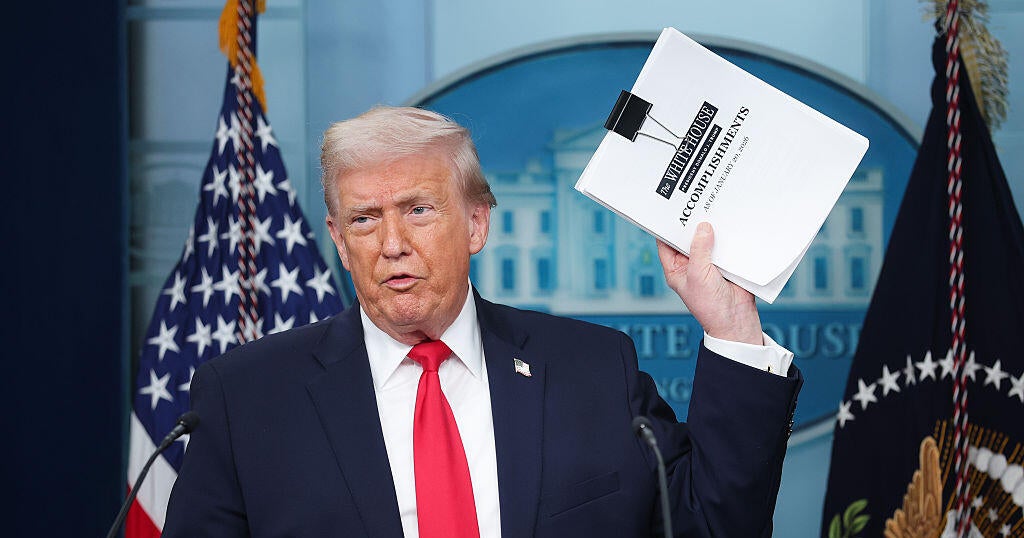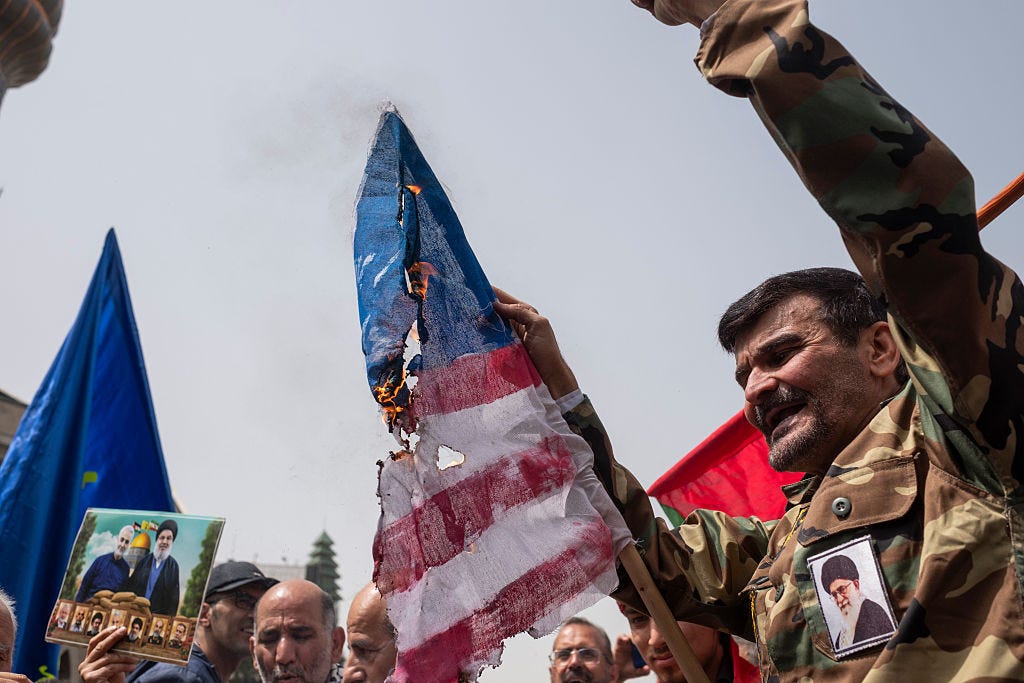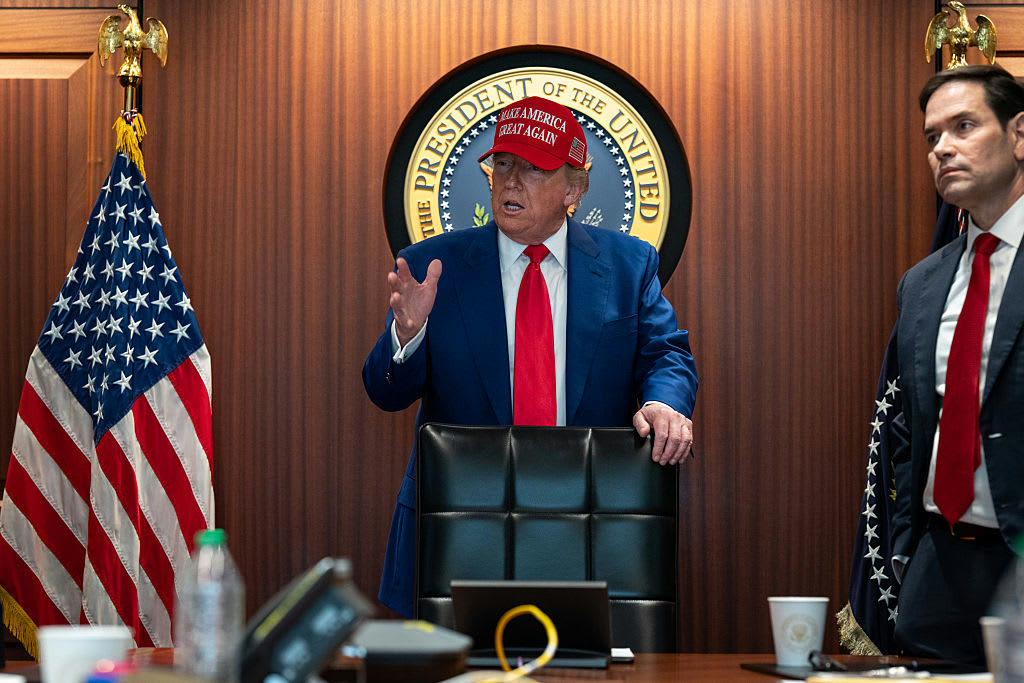Trump claims Soleimani was targeting four U.S. embassies
Iranian general Qassem Soleimani was targeting "probably" four U.S. embassies, President Trump said in a Friday interview with Fox News' Laura Ingraham. The president had already said Thursday Iran was looking to "blow up our embassy," and Secretary of State Mike Pompeo said in a White House briefing Friday that embassies and other U.S. facilities were indeed targets.
"We will tell you that probably it was going to be the embassy in Baghdad," Mr. Trump said in an interview with Ingraham airing Friday night, adding when asked for more specifics, "I can reveal that I believe it would've been four embassies."
White House counselor Kellyanne Conway, speaking to reporters in the White House briefing room, declined to comment further when asked about the president's remarks.
Pompeo told reporters Friday Soleimani was planning attacks on U.S. embassies ahead of the United States' deadly strike on Soleimani, although the nation's top diplomat admitted he was not sure exactly which day or days those attacks were to take place.
"We had specific information on an imminent threat, and that threat stream included attacks on U.S. embassies. Period. Full stop," Pompeo told reporters on Friday, in response to a question from CBS News White House Correspondent Paula Reid.
Addressing reporters alongside Treasury Secretary Steve Mnuchin Friday morning, Pompeo also dodged questions from reporters about whether information on planned embassy attacks was given to Congress, since several sources have told CBS News embassies were not mentioned during this week's briefings by top Trump administration officials on Capitol Hill. The administration has insisted Soleimani posed "imminent" threats against U.S. citizens but has not offered specific details about what constitutes "imminent."
On Fox News Thursday night, Pompeo said he didn't know exactly when or where the attacks were going to take place.
Asked by a reporter Friday for his definition of "imminent," Pompeo said, "This was gonna happen. And American lives were at risk. We would have been culpably negligent...had we not recommended to the president that he take this action against Qassem Soleimani."
As Pompeo and Mnuchin briefed reporters, Mick Mulvaney — who, after more than a year, still has the title of "acting" White House chief of staff — and national security adviser Robert O'Brien stood off to the side.
On Friday morning, the State Department said in a statement U.S. troops will remain in Iraq, even as many in the country want the U.S. to leave. The administration is sending thousands more troops to the Middle East, even as the president pledged to get the U.S. out of endless wars on the campaign trail.
In response to Iran's missile launch on Iraqi bases housing U.S. troops, which resulted in no reports of casualties, Mnuchin announced new sanctions on Iran and Iranian officials. The sanctions, Mnuchin said, will be both primary and secondary, targeting not only Iran, but also certain entities that do business with Iran. The U.S. has already imposed crippling sanctions on Iran, sanctions Mnuchin and Pompeo insisted Friday are working, despite continued aggressive behavior from Iran.
Specifically, Mnuchin announced 17 various sanctions meant to exert more pressure on Iran's economy, and sanctions against eight additional Iranian officials the U.S. believes were involved in the retaliatory missile attacks by Iran earlier this week.
"Today's sanctions are part of our commitment to stop the Iranian regime's global terrorist activities," Mnuchin said. "The president has been very clear. We will continue to apply economic sanctions until Iran stops its terrorist activities and commit that it will never have nuclear weapons."
The president had announced there would be additional sanctions earlier this week but hadn't elaborated.
At a rally in Toledo Thursday night, Mr. Trump touted the deadly strike on Soleimani and said that the Iranian military commander had been "actively planning" a "new attack," and looking "very seriously at our embassies" in Baghdad and elsewhere. Earlier Thursday, the president said Iran was looking to "blow up our embassy," the first time the administration had mentioned such a threat, although exactly what he meant by that was unclear. Pro-Iranian demonstrators had launched an assault on the U.S. embassy in Baghdad early this month, before Soleimani's killing.
Democrats and a small number of Republicans are angry about the limited information they're receiving from the Trump administration about the intelligence that prompted the strike on Soleimani. Republican Senator Mike Lee of Utah called a briefing from top administration officials earlier this week probably the worst he's ever received on military matters in nearly a decade in the upper chamber.





